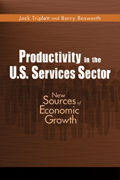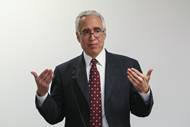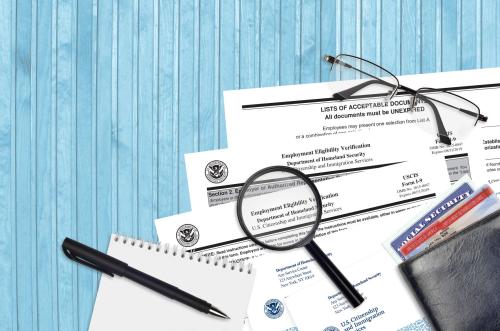As Congress debates legislation to strengthen the civil service, it would do well to request testimony from the nation?s most motivated workforce. It?s not at Southwest Airlines, General Electric or Johnson & Johnson, however. Nor is it at NASA, the National Institutes of Health, or the Defense or State departments.
Rather, the nation?s most motivated workforce can be found at day-care and after school centers, child welfare offices, juvenile courts, and employment and training centers that serve low-income Americans. Human services workers are not only deeply committed to their mission, they persevere day after day under some of the toughest working conditions in the country. That makes them the most dedicated employees studied by the Brookings Institution Center for Public Service, which I direct, over the past four years.
The evidence comes from our national survey of more than 800 randomly selected human services workers who work in businesses, nonprofit agencies and state and local government. According to the survey, which was funded as part of the Annie E. Casey Foundation?s new Human Services Workforce Initiative, human services workers were more likely than any other employees to say they come to work each day because they like their jobs. Most importantly, they were more likely than any other group to say they were proud to tell friends and neighbors what they did for a living.
Beyond being happier in their jobs, human services employees also reported fewer poor performers in their midst, especially when compared with the federal and business employees we surveyed last year. Federal and business employees estimated that roughly 25 percent of their peers were not doing their jobs well; human services workers put the number at 17 percent. One out of six human services workers said there were no poor performers in their organization, compared with one out of 10 business employees and one out of 20 federal employees.
The difference is the mission. Only 8 percent of the human services workers said they come to work each day for the pay, compared with 41 percent of federal employees and 47 percent of business employees. Instead, 60 percent of human services workers said they came to work because they liked their jobs or for the public good, compared with just 32 percent of federal employees and 35 percent of business employees.
Human services workers might be the most motivated employees in the nation, but they do not have the support they deserve. They pay a steep price for their commitment to helping low-income children and families.
The stress is most intense on the front lines, where human services workers are responsible for saving lives and futures. Asked to do more with less every day, many human services organizations are on the verge of doing everything with nothing. Training dollars are almost nonexistent, supplies and staffing rosters are short, and equipment is decades behind the curve.
Moreover, too many human services workers say that talent and achievement are not rewarded in their organizations, and too few believe that they have the chance to do the things they do best. They come to work in the morning because they are committed to the mission, but go home at night worn out by the persistent lack of resources. The question is how long these workers will keep coming back for more of the less.
The human services study reveals troubling parallels with the center?s earlier profile of the federal workforce. Government human services workers were more likely than business or nonprofit human services workers to say it was easy to burn out in their jobs, less likely to say they made a difference in the lives of the people they served, and more likely to feel unappreciated in their work.
The results should sound familiar. They echo the national patterns found in the center?s comparisons of federal, business and nonprofit employees. Although federal employees were generally more satisfied with their jobs, they reported the most serious training and staffing shortages, and the lowest morale and public respect.
The big difference between federal employees in general and government human services workers is mission. Government human services workers come in each day because they like their jobs or want to help their communities, yet federal employees are far more motivated by compensation. The problem isn?t government work, rather it is the lack of a clear, compelling mission.
The lesson to Congress could not be more obvious. Give employees a clear mission worth caring about, and they will work harder and complain less. That should not be an excuse for exploiting them through lower pay and fewer resources. Doing so is a sure recipe for turnover and stress.









Commentary
Op-edPride and Perseverance
July 10, 2003